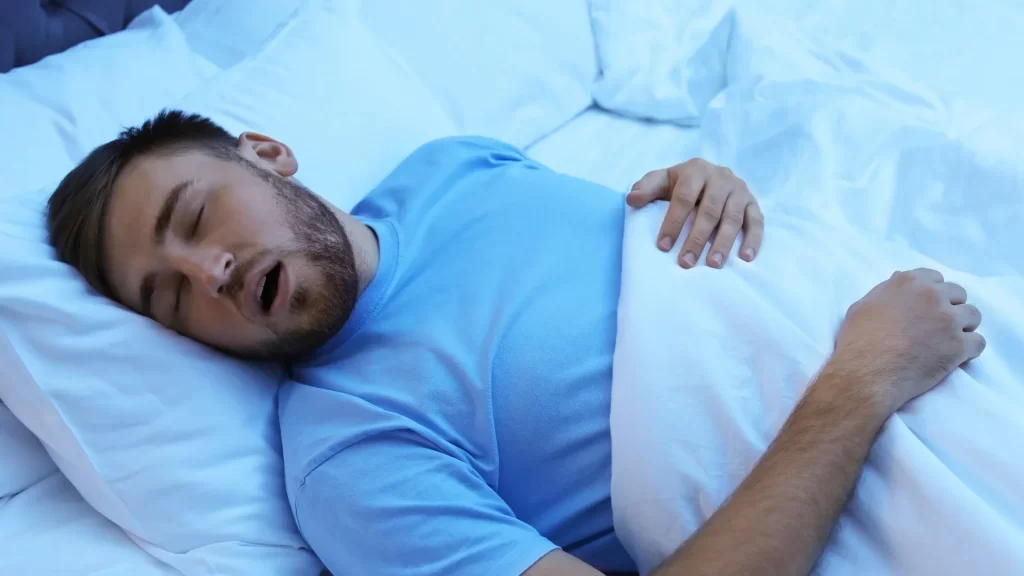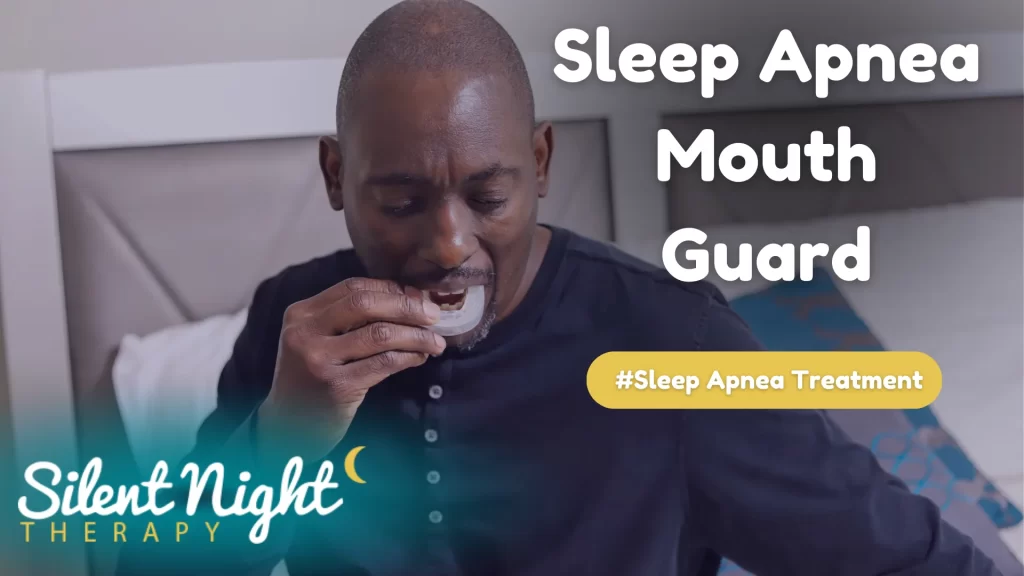Posted on Friday, December 1st, 2023 at 9:00 am
Sleep apnea is a potentially serious sleep disorder where a person’s breathing repeatedly stops and starts during the night. You may have sleep apnea if you snore loudly, wake up gasping, and are tired after a full night’s sleep. It’s essential to have a medical professional evaluate and diagnose you for proper treatment. One treatment option for sleep apnea is called oral appliance therapy. Oral appliances like a mouth guard can effectively treat sleep apnea and chronic snoring and improve oral health.
If you suffer from sleep apnea, you should see a professional to find out if oral appliance therapy is right for you. Our team of West Babylon sleep apnea specialists at Silent Night Therapy can help you choose the right type of oral appliance. It’s time to start sleeping.
Understanding Oral Appliances for Sleep Apnea
Oral appliance therapy is popular in treating obstructive sleep apnea (OSA), particularly for those people who want to avoid surgery or are uncomfortable using a CPAP (continuous positive airway pressure) machine. Oral appliance therapy uses custom-fit mouth guards to address underlying structural factors contributing to sleep apnea, such as a small lower jaw or a tongue falling back into the throat. These structural features can obstruct a person’s airway, resulting in sleep-disordered breathing symptoms. Most commonly, mouth guards move the lower jaw forward, opening the airway, although some adjust the tongue’s position forward instead.
How Mouth Guards Work in Sleep Apnea Treatment
A sleep apnea mouth guard works by repositioning the jaw, tongue, or soft palate to keep the airway open during sleep. A dentist molds the mouthguard to fit your teeth, and you wear them like an orthodontic retainer while asleep. Typically, mouthguards treat people with mild to moderate sleep apnea and teeth grinding, but they may also be effective for severe sleep apnea.
Before we go through the pros and cons of using a mouth guard, let’s first discuss its different types. Each serves a different purpose, and the effectiveness of each depends on an individual’s circumstances.
Types of mouthguards
- Mandibular advancement device (MAD) and mandibular advancement split (MAS). A dentist molds these mouthguards to fit your teeth and adjusts them to move your lower jaw forward. “Mandibular” refers to the lower jaw. The jaw realignment helps open blocked airways and eliminate snoring.
MADs come in one- and two-piece designs. The two-piece design has connected upper and lower guards. One-piece designs hold both the upper and lower jaw in place, which some people find restrictive. On the other hand, others prefer two-piece designs with separate upper and lower jaw pieces, as they allow for more movement.
A dentist will scan your teeth and bite and customize the MAD by size, material, coverage, and jaw movement. While generic MADs are available over-the-counter, their effectiveness is unclear. Moreover, many people complain that these over-the-counter MADs are uncomfortable and don’t fit well.
- Tongue retaining device or tongue stabilizing device (TRD or TSD). This mouth guard fits between your teeth and holds your tongue in place. The mouthpiece has a suction that prevents your tongue from falling back into your throat and blocking the upper airway. The TRD/TSD resembles a pacifier rather than a mouthguard. The tongue is held inside a bulb that sticks out of your mouth.
- Soft Palate Lifters. Soft palate lifters raise the soft palate and uvula to reduce vibrations from the soft palate.
Pros of Using Sleep Apnea Mouth Guards
Mouthguards are a popular choice among people looking for a less invasive treatment than medical intervention. Not only can a dental appliance like a mouth guard help protect the teeth, it can also provide the following benefits for people with obstructive sleep apnea:
- Reduce sleepiness during the day
- Reduce the amount and volume of snoring
- Improve levels of oxygen in the blood
- Reduce the frequency of pauses in breathing
- Reduce episodes of shallow breathing
Additionally, some people prefer mouthguards because, unlike CPAPs, mouthguards are:
- Easy to travel with
- Quiet
- Functioning without power
- An alternative to a CPAP machine for people with claustrophobia
- Less invasive than surgery and other medical treatments
- Affordable compared to other sleep apnea treatments
Cons of Sleep Apnea Mouth Guards

- Dry mouth
- Headaches
- Drooling
- Gum irritation
- Bite changes
- Discomfort around the mouth
- Jaw pain
Contact Silent Night Therapy to Learn More About Mouthguards
Is a mouthguard right for you? Our team of West Babylon sleep professionals at Silent Night Therapy can evaluate you to determine whether an oral appliance is a good treatment option in your situation. Learn more by contacting us online or calling us at 631-983-2463 to schedule a free and confidential consultation. It’s time to improve your sleep.
